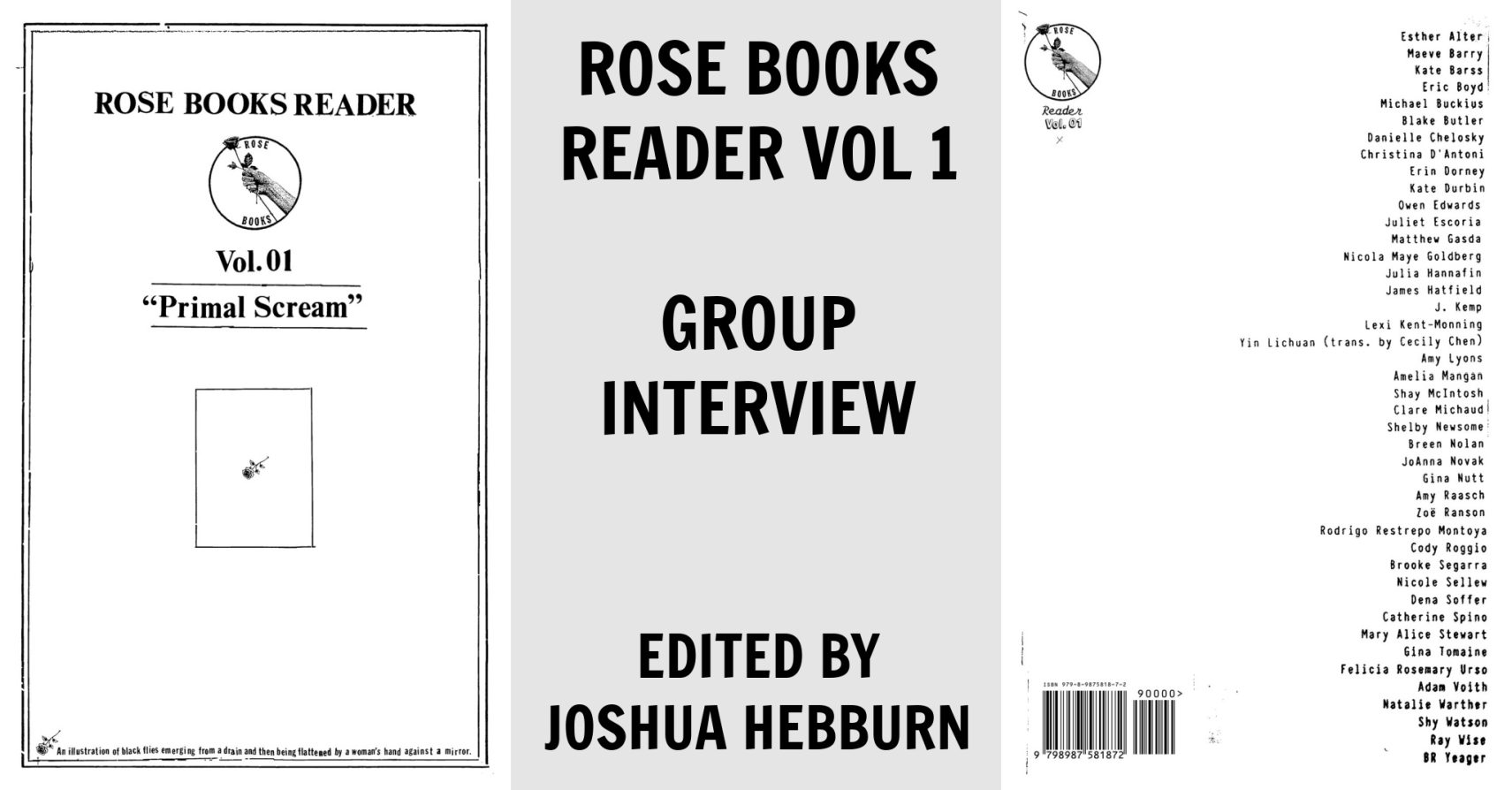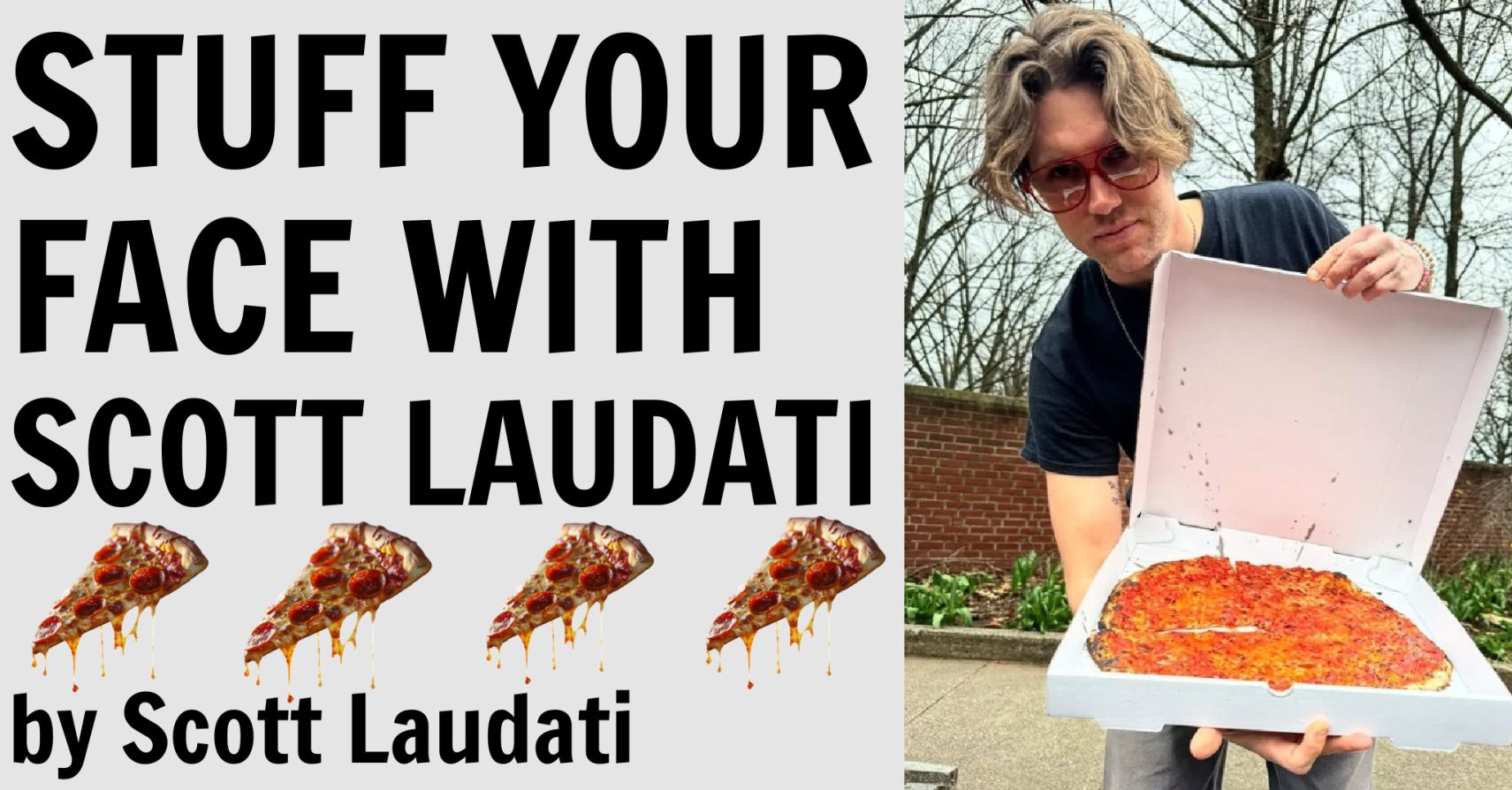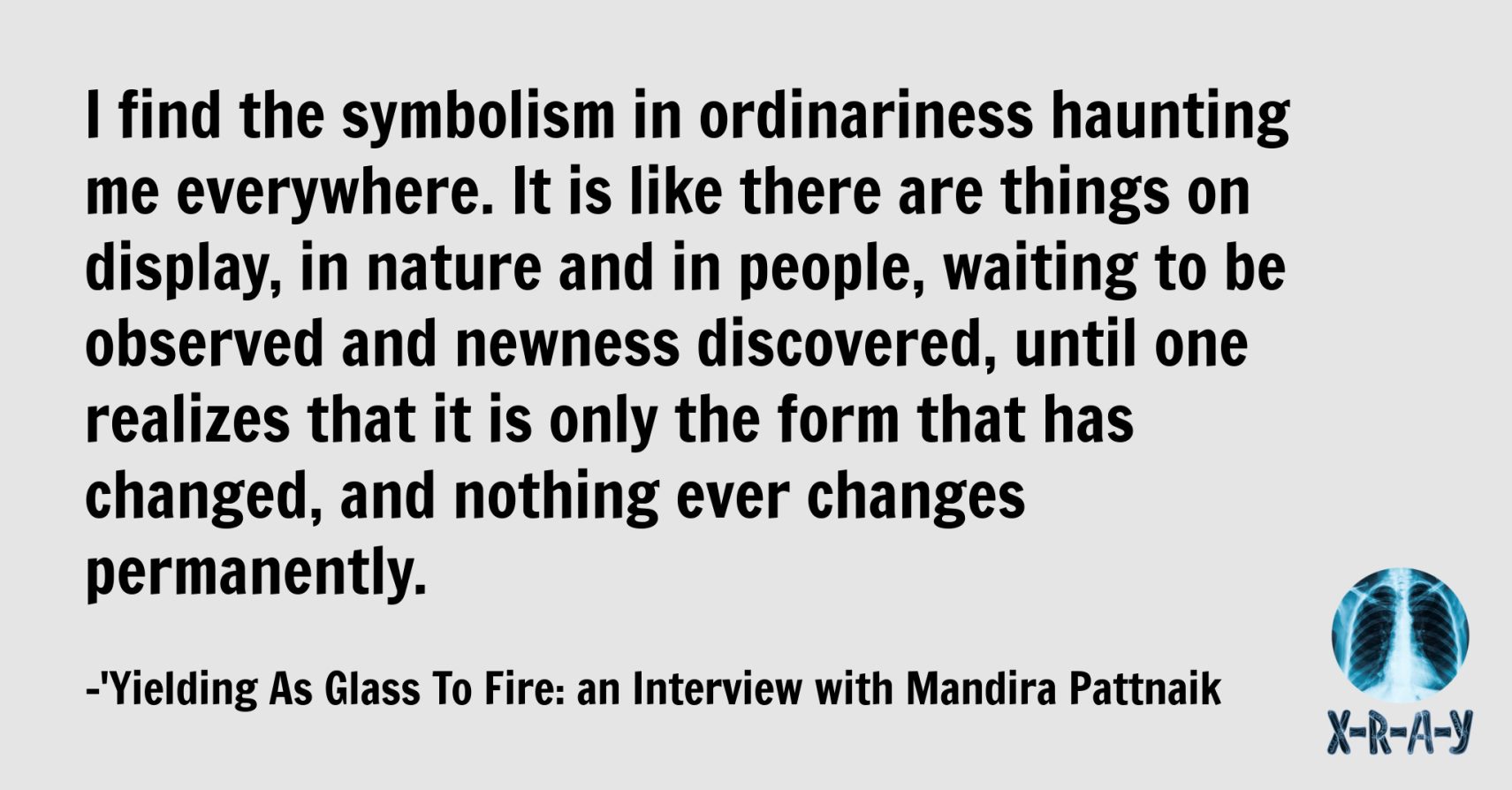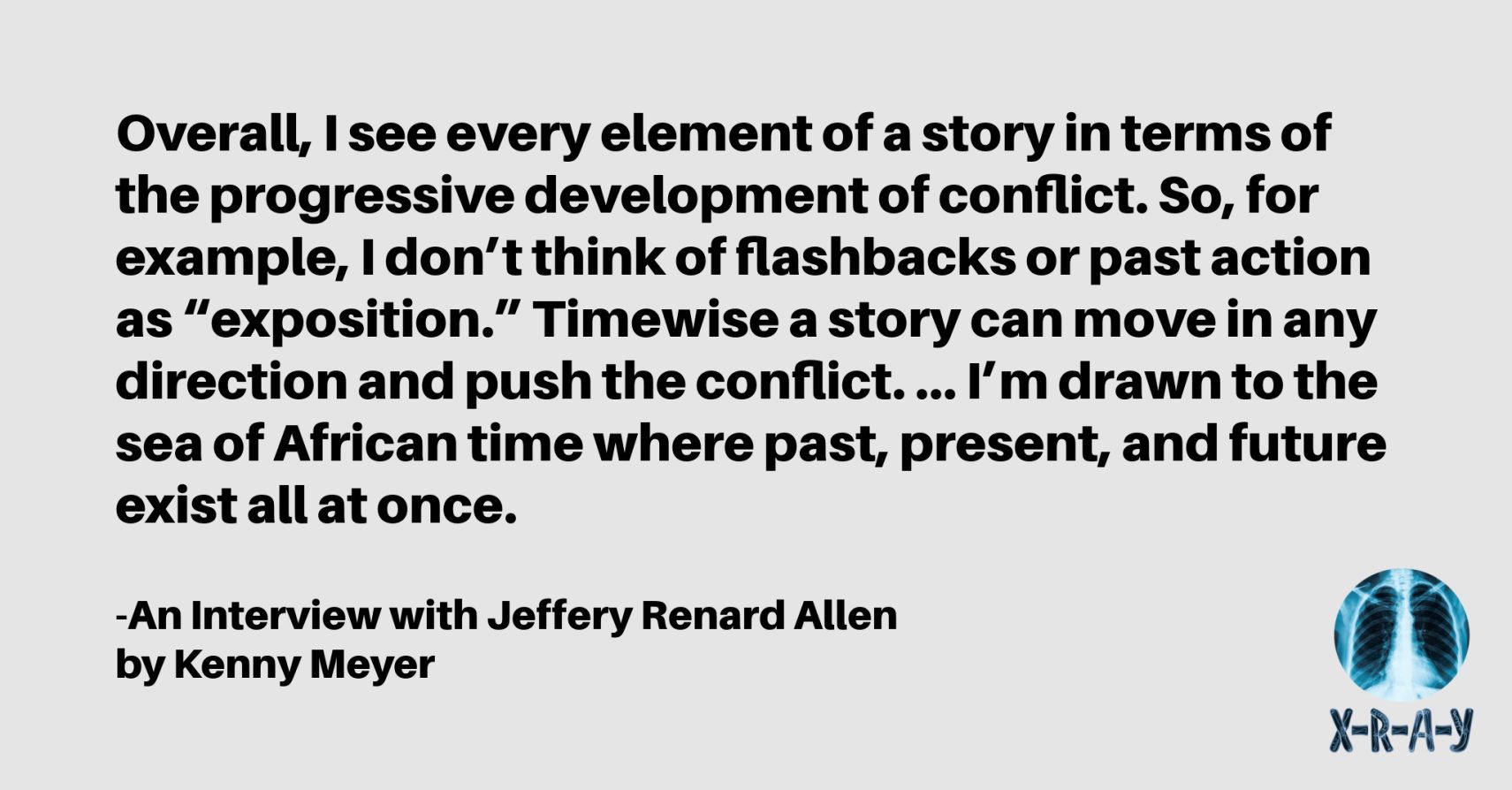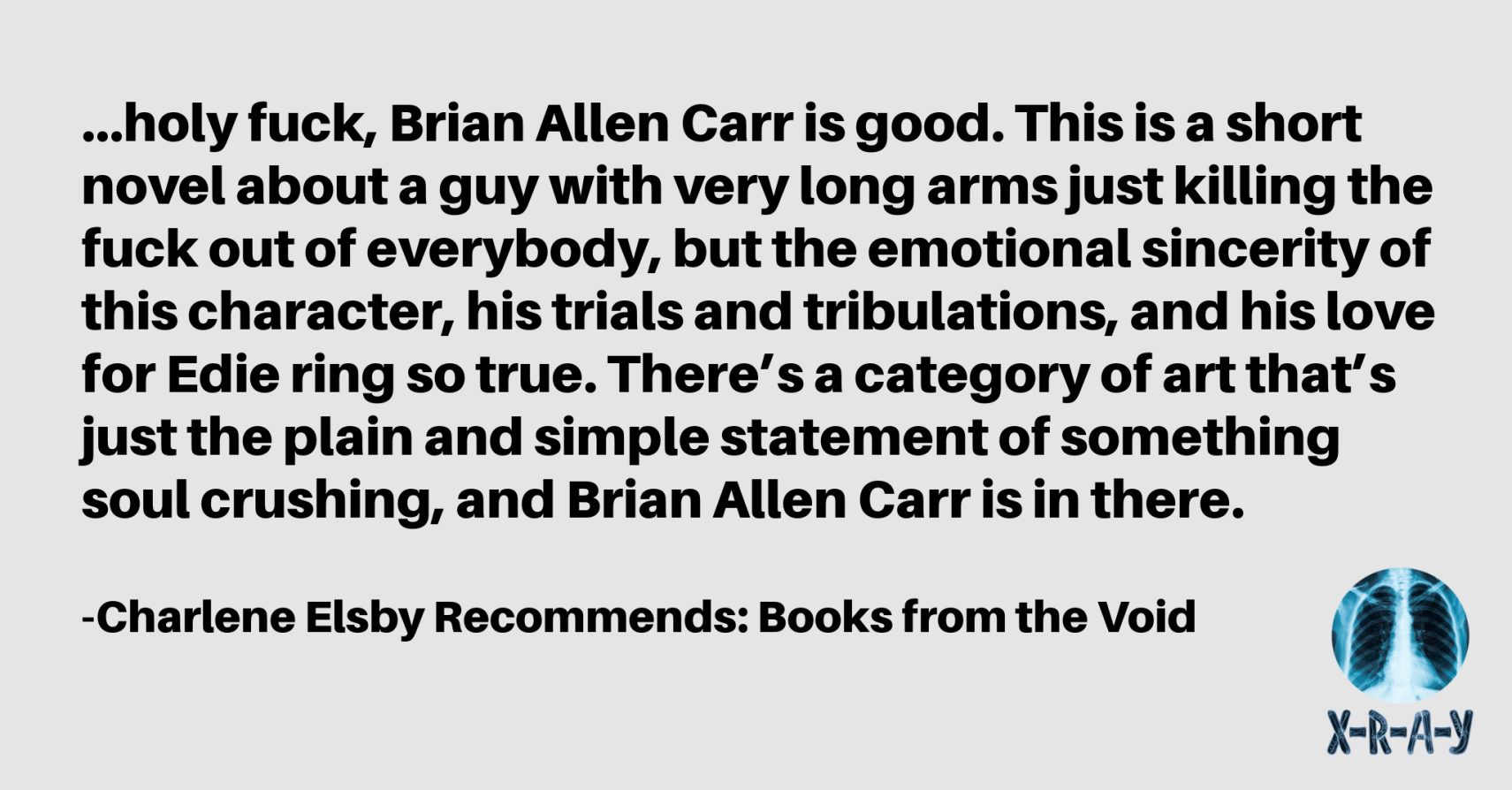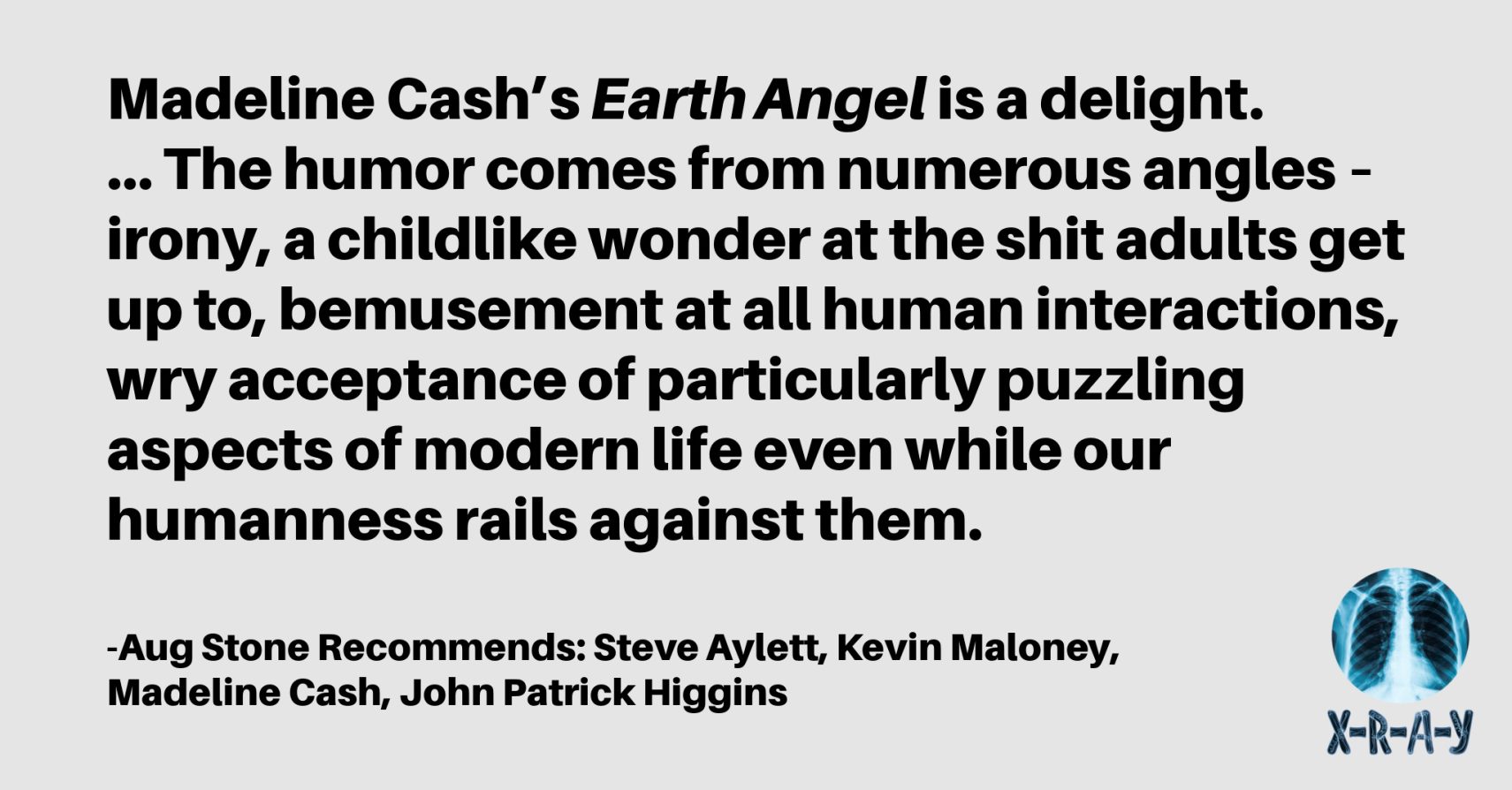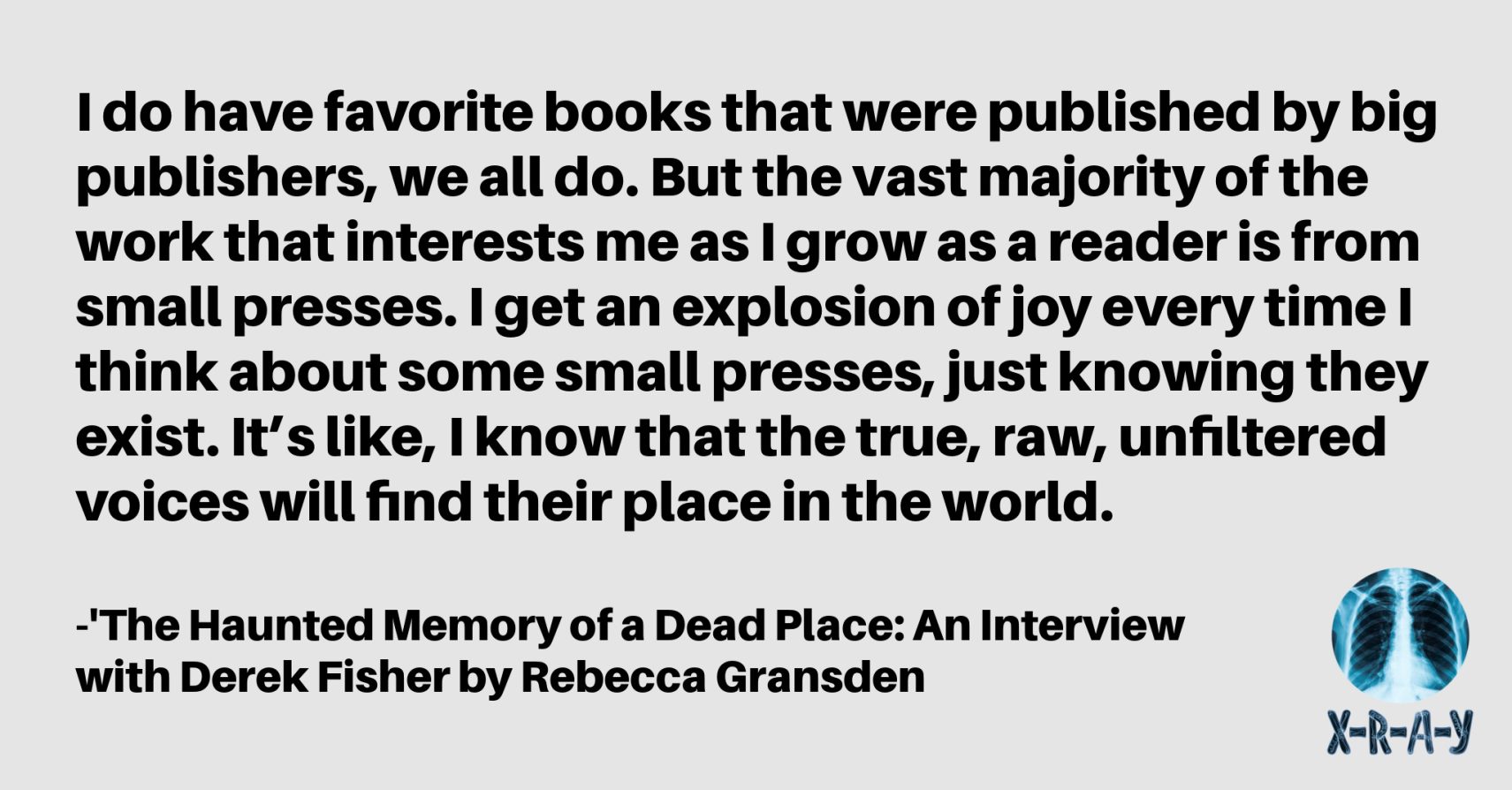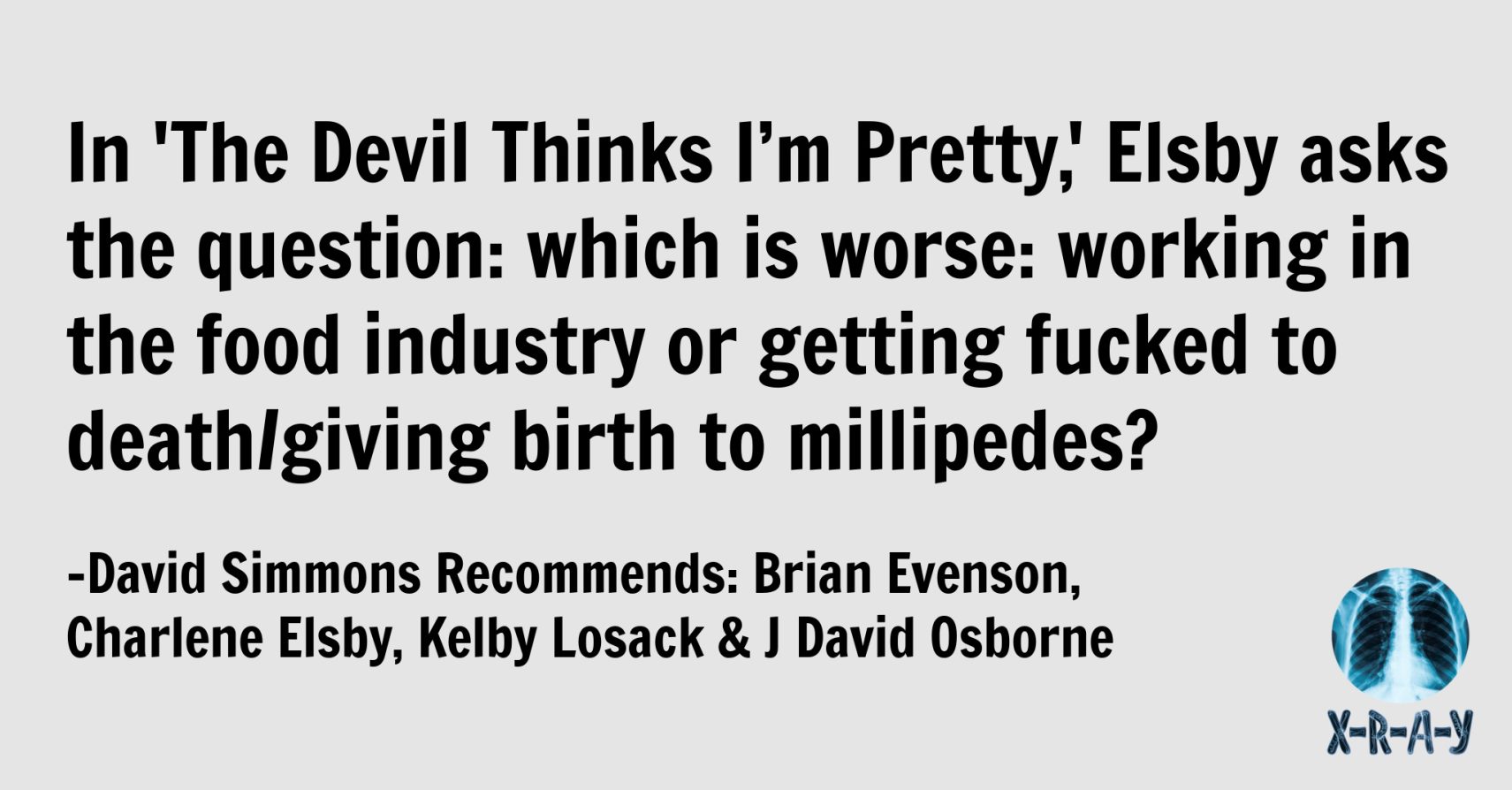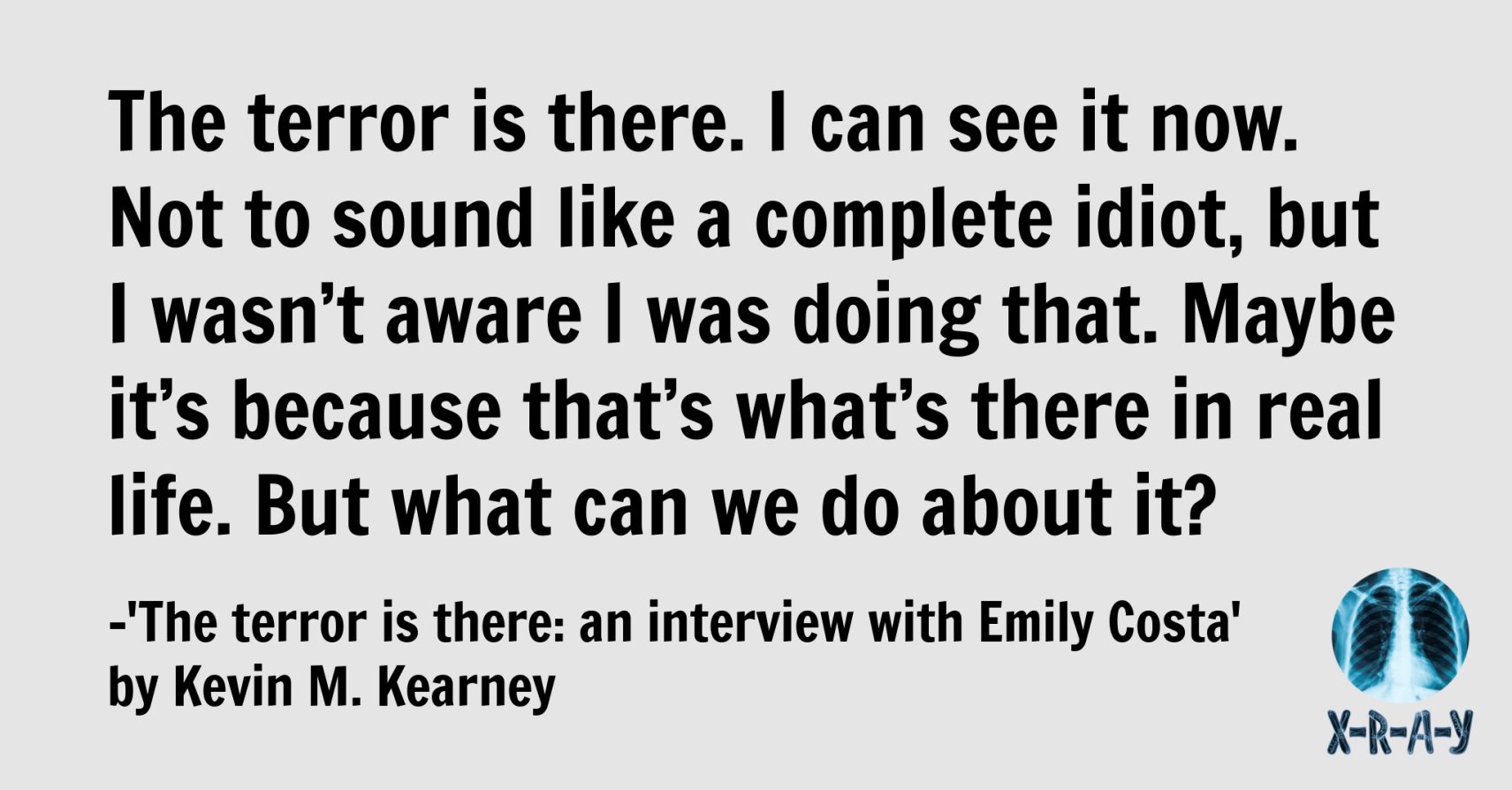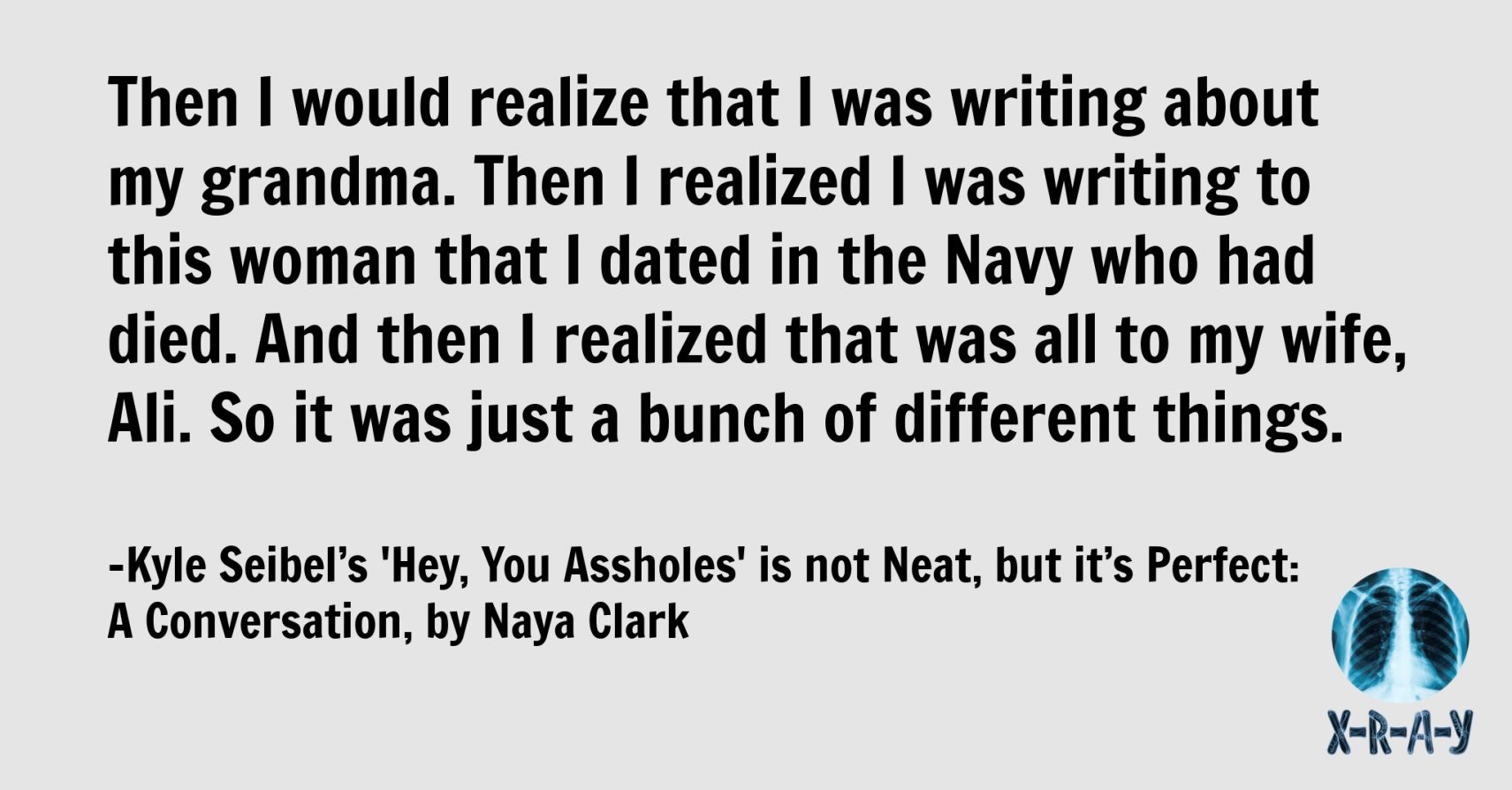
KYLE SEIBEL’S ‘HEY, YOU ASSHOLES’ IS NOT NEAT, BUT IT’S PERFECT: A CONVERSATION by Naya Clark
Kyle Seibel is not a veteran writer or a magical realism writer, but he is a veteran and his writing has magical and realistic attributes. He is still breaking into the literary world even though he seems to have a hang of it. He’s witty on a website we used to call Twitter, and can write a hell of a short story. Rarely does he add quotes when his characters are speaking and he doesn’t capitalize his story titles. Seibel is based in Santa Monica and lives with his wife and dog named Snacks—who also has an established internet presence…

